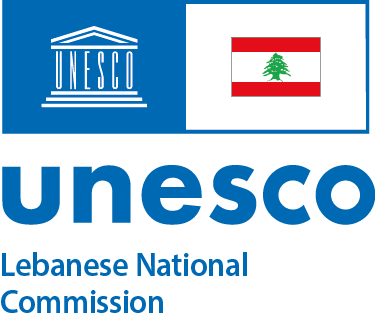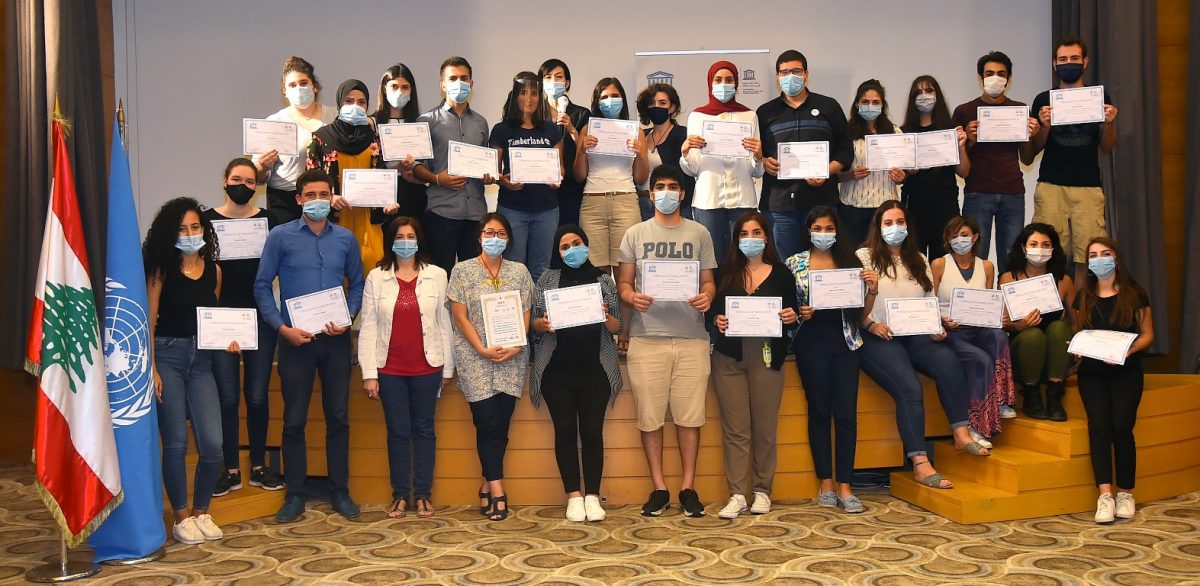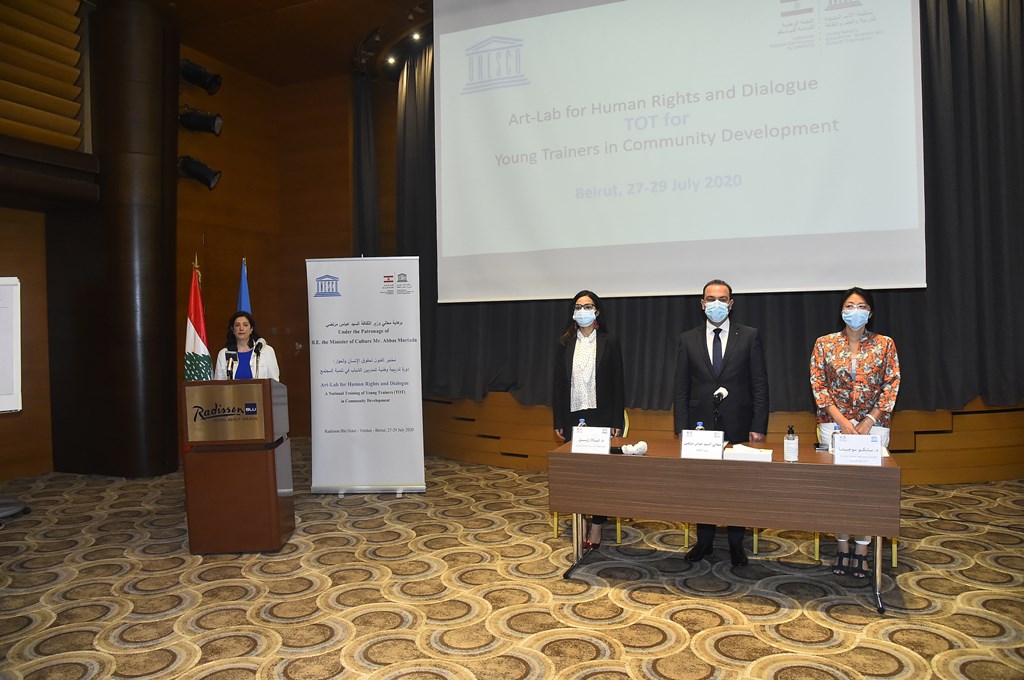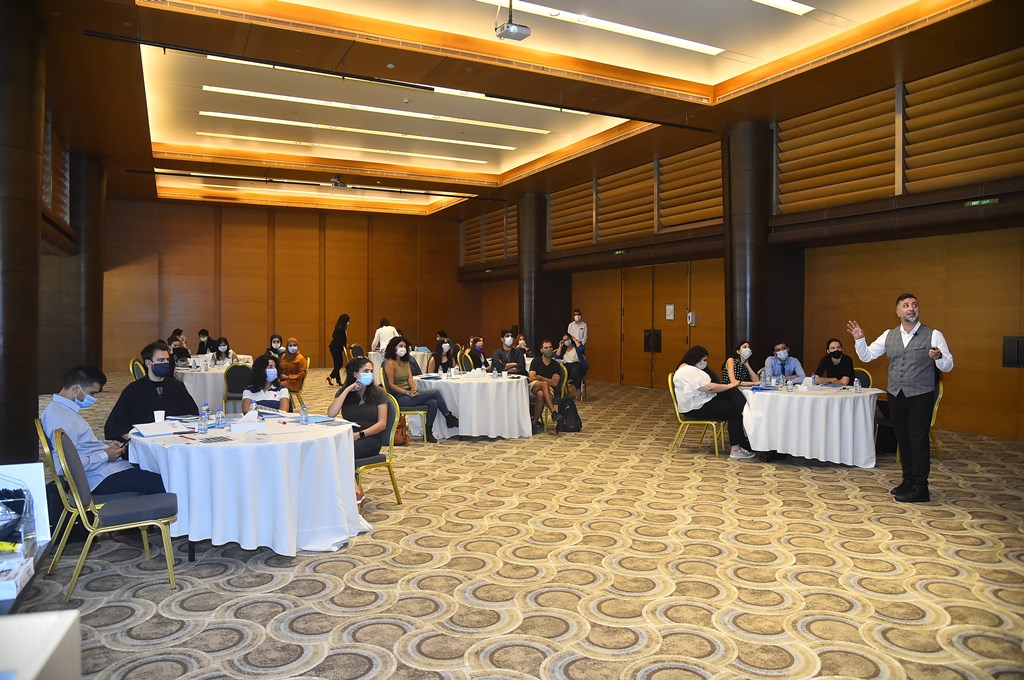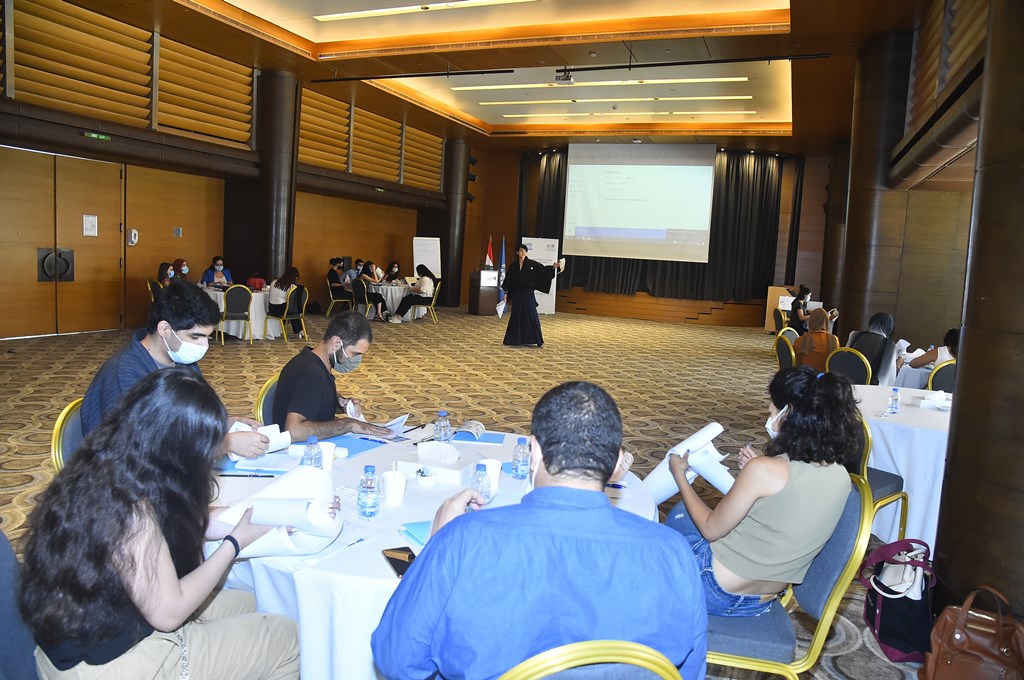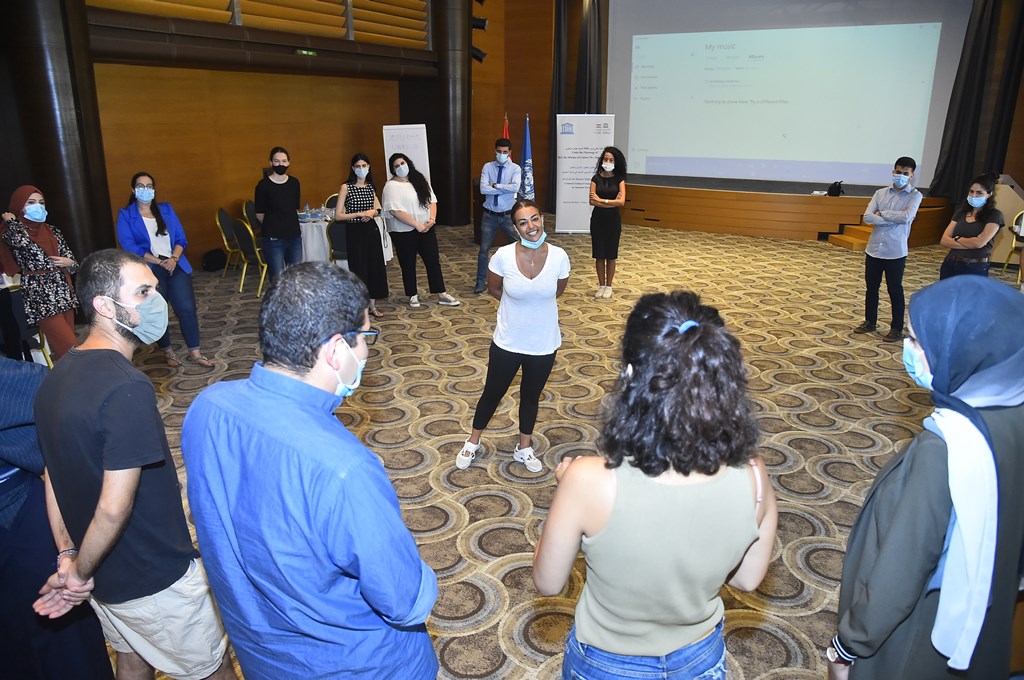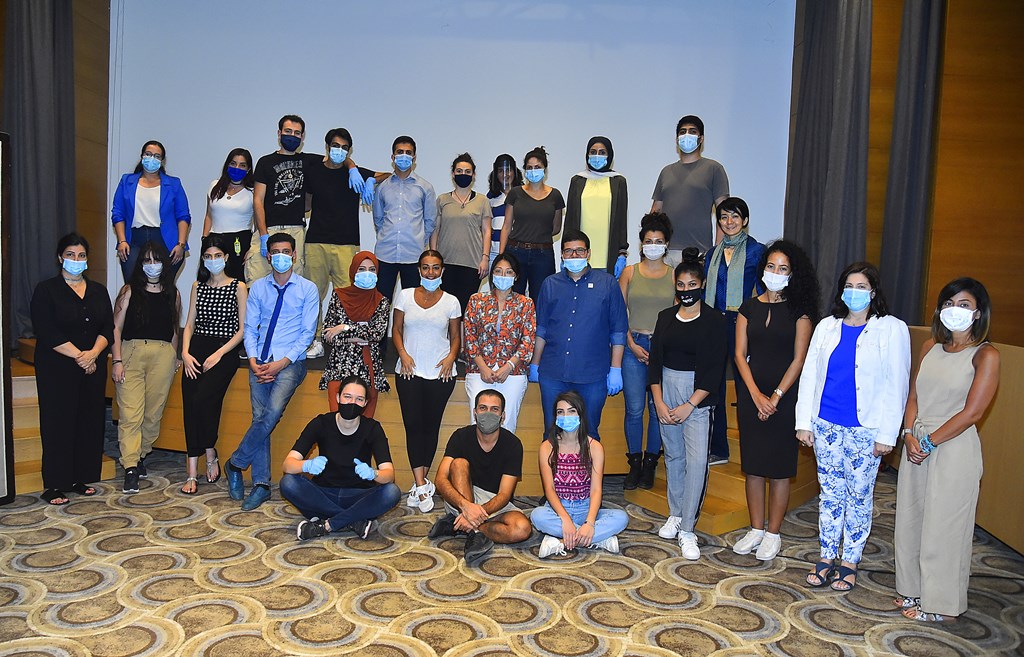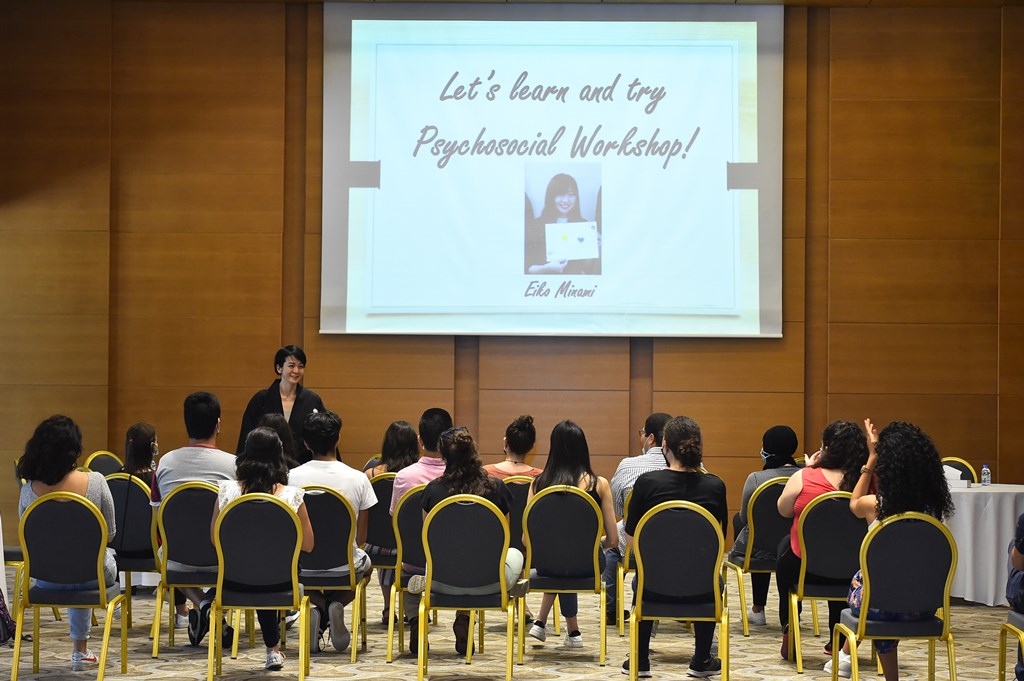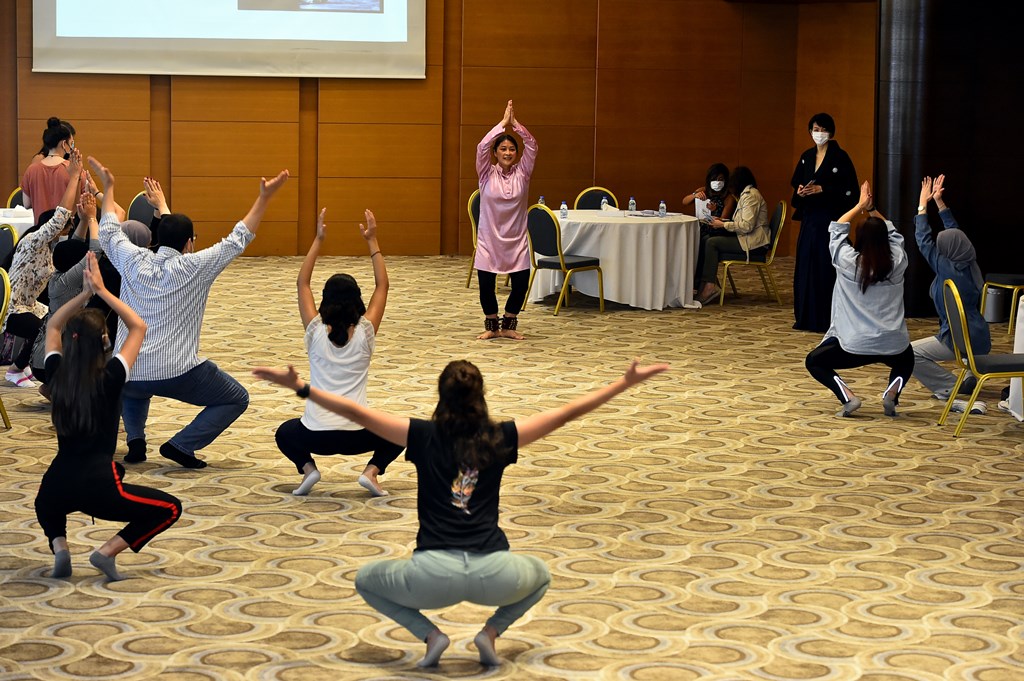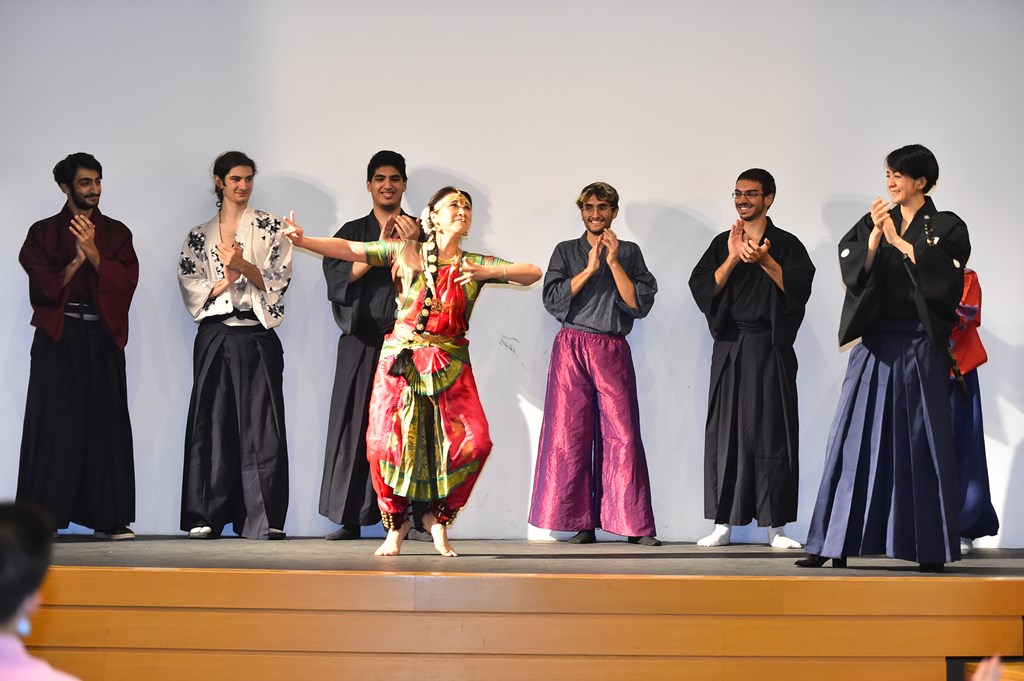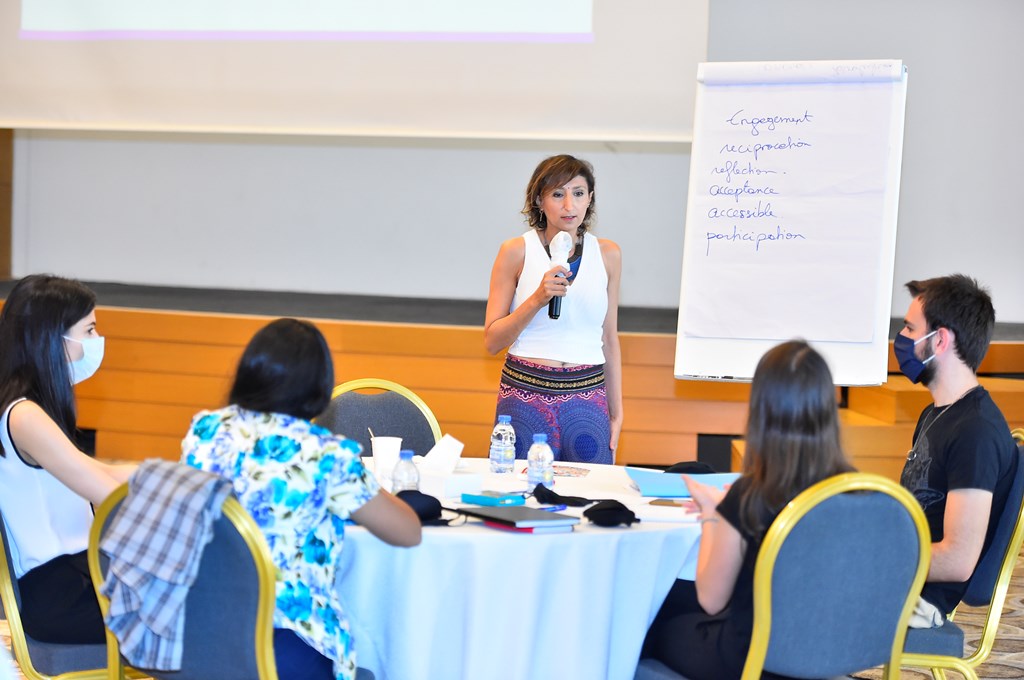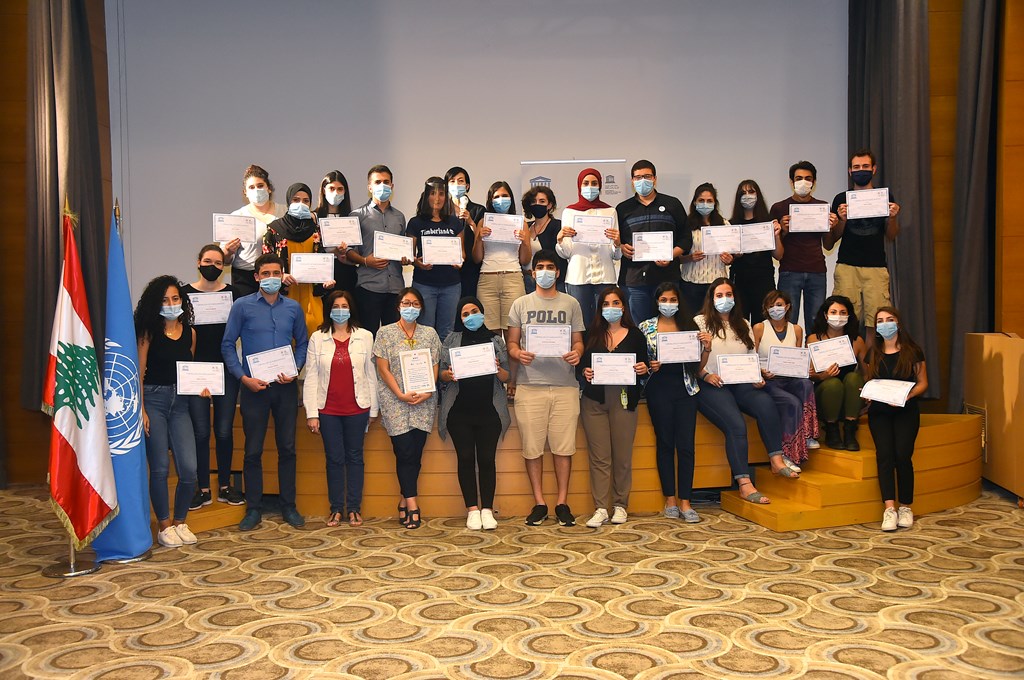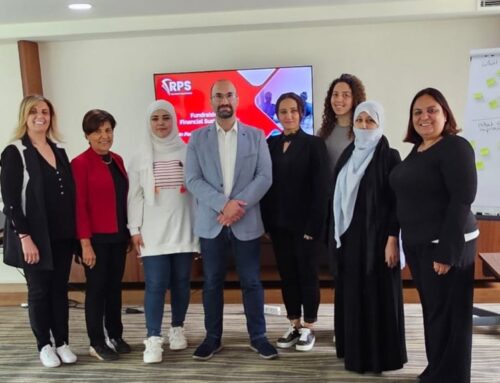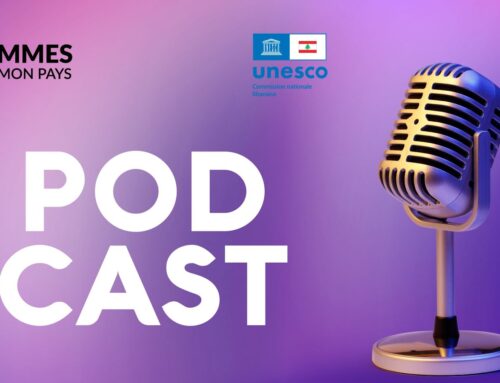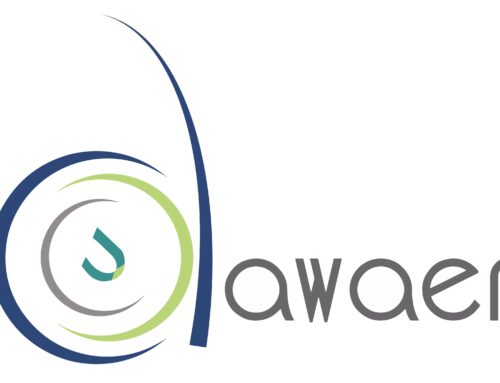Under the patronage and presence of H.E. Minister of Culture Mr. Abbas Mortada, the Lebanese National Commission and UNESCO Beirut Office organized a 3-day Training of Trainers (TOT) on “Art-Lab for Human Rights and Dialogue” to promote intercultural dialogue through arts, and address how artistic practices can be pursued as a means of defending human dignity and human rights.
A group of 26 youth community leaders (20 women and 6 men) from different regions in Lebanon, representing UNESCO Clubs at various universities and civil society organizations members of the Lebanese Network for the Anna Lindh Euro-Mediterranean Foundation for the dialogue between cultures were trained on how to enhance social cohesion, national and global citizenship and raise awareness on challenges of social inclusion through arts.
After the national anthem, a welcome speech was delivered by Ms. Christiane Jeitani, the National Coordinator of UNESCO ASPnet and Clubs for UNESCO Networks highlighting the importance of this innovative workshop “Art Lab” in developing skills of youth on how to use arts to heal, to promote dialogue and human rights and developing the community.
Then the Minister of Culture Mr. Abbas Mortada addressed the youth saying that: “We at the Ministry of Culture are pleased to support this wonderful cultural event, and we commend the creative cooperation with the UNESCO for the promotion of intercultural dialogue”. He added: “These efforts are in harmony with the decisions of UNESCO and its office in Beirut, in cooperation with the National Commission for UNESCO, and thus in implementation of the agreements concluded in this field, within the framework of the International Decade for the Rapprochement of Cultures 2013-2022”, stressing that “we at the Ministry of Culture look forward with great interest to the results of these efforts aimed at consolidating our belonging and identity, by strengthening the mechanisms of dialogue, and cultural and intellectual interaction and acceptance of the other through Art.”
In her speech, Dr. Tala Zein, Secretary General of the Lebanese National Commission, mentioned that “the mere fact of being here today and being able to conduct this workshop despite the current situation and the dangerous spread of Covid19 is by itself an act of resilience and shows that when there is a will there is always a way. Art makes us resilient. In times of crisis, we need art more than ever”. Addressing the youth, she stressed that their role is a vital one “The future belongs to you. You are the agents of change, and we are relying on you to be pro-active contributors and not just beneficiaries of this workshop, by being active in your communities and multiplying the skills you’ll hopefully be acquiring”.
Then Dr. Seiko Sugita, Program Specialist – Social and Human Sciences at UNESCO Beirut Office representing UNESCO Regional Office Director Dr. Hamed Bin Saif Al Hammami, stressed that: “UNESCO seeks to advance the Arts for human rights, dialogue, social justice and what is related in favour of refugees and marginalized communities in places of conflict”. She underlined: “We are working on studying the challenges posed by the Coronavirus pandemic, especially those related to the dialogue between the parties now, and what these dialogues will lead to in the future in light of the Corona pandemic”.
The Art Lab succeeded in organizing a series of interactive sessions by renown trainers that tackled the following topics: Common humanity and appreciation of Diversity by Mr. Milad Hadchiti; Art/ Dance for inter-cultural dialogue: Understanding me and the other by Ms. Dalal Bazzi; Ethics & Values: Dance for Happiness by Mr. Ajay Singh – Cultural attaché of the Embassy of India; How Arts help the inclusiveness of our society by Dr. Nadine Abou Zaki; Resilience & Empowerment through Arts by Ms Eiko Minami, with the participation of the intercultural play group “Dreamers in Lebanon” and with special performance from Dr. Seiko Sugita about traditional Indian dance Bharatnatyam .
Stephanie Chettiar (Master student at the Institute of Social Sciences at the Lebanese University – Rabieh) said “In these 3 days, we were able to prove that coexistence is possible as long as we all want to create positive change”.
Khalil Khaled Shamma, Member of the UNESCO Club – Faculty of Arts and Humanities at the Lebanese University – Saida, found the workshop “very useful where it increases knowledge in human life and experience, on the cultural, artistic and psychological levels”.
